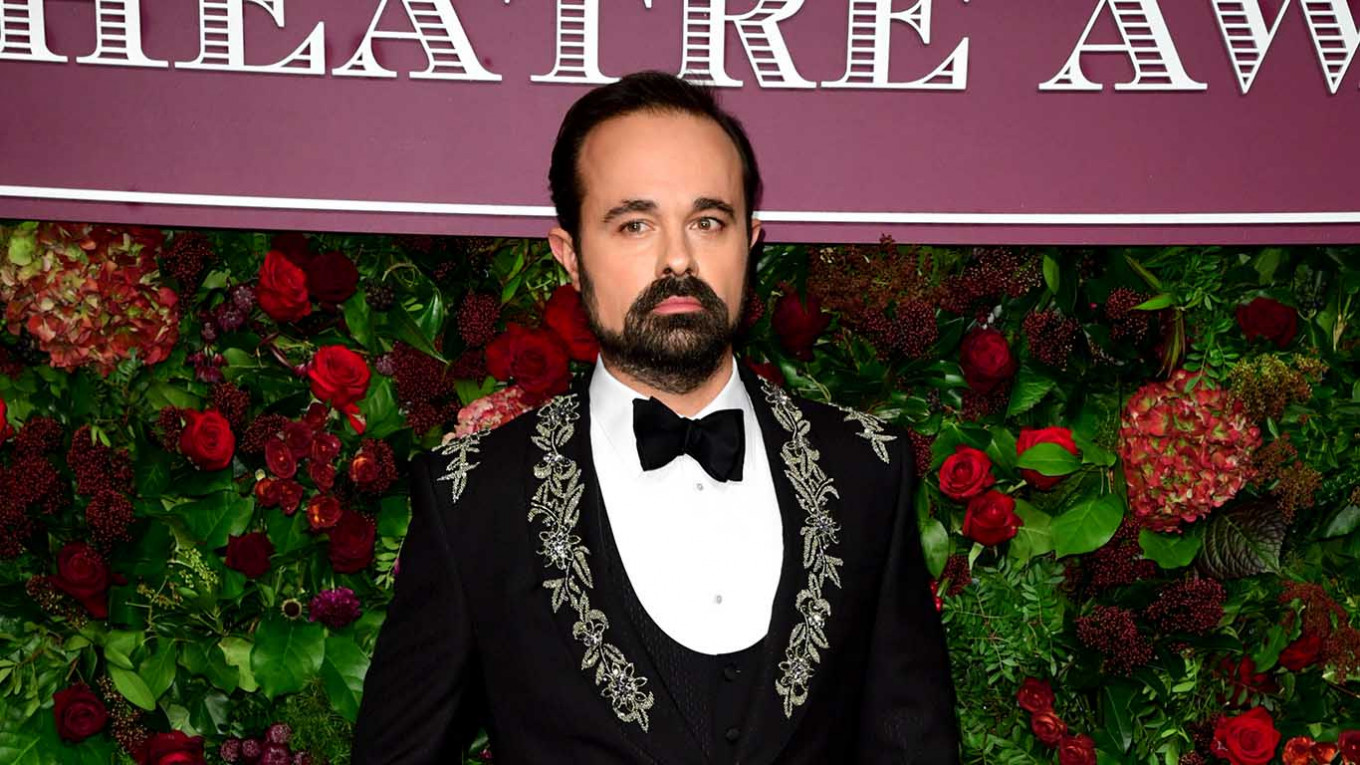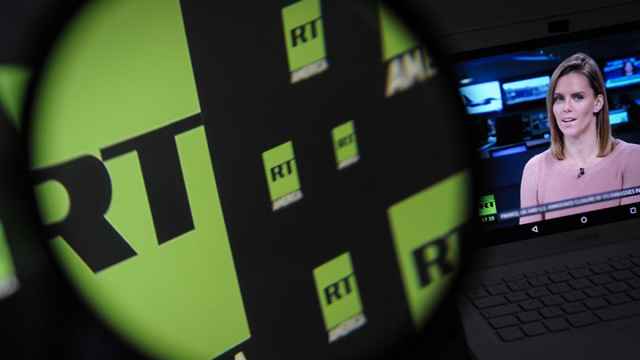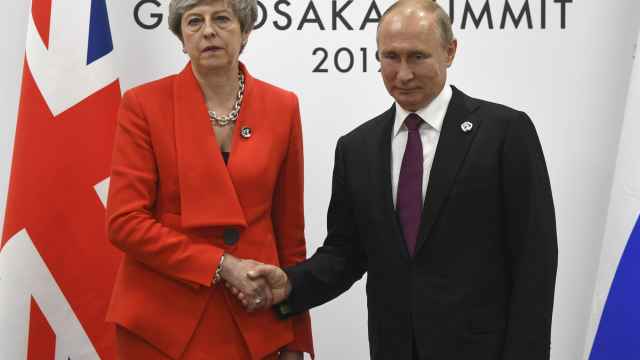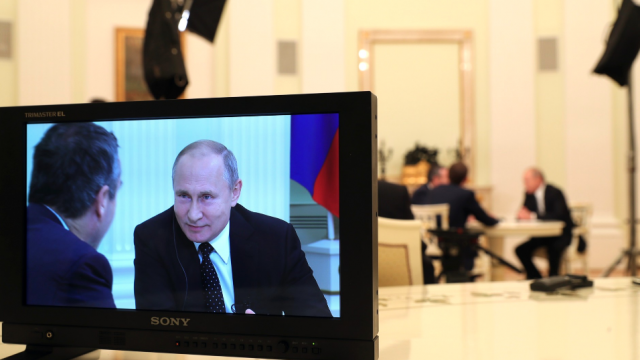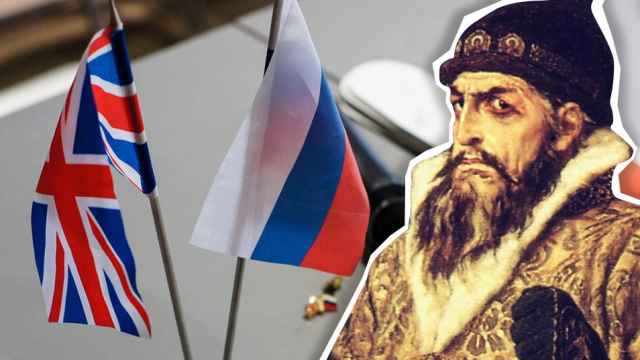The recent official report on interference in British politics hinted at undue influence being exerted by rich Russians in London. With his decision to make Russian-born newspaper-owner Evgeny Lebedev a lord, it’s almost as if Boris Johnson wants to prove it right.
The story of the Russia report produced by the cross-party Intelligence and Security Committee (ISC) was already a murky one. In November 2017, the ISC began its deliberations, finally submitting its report to Johnson in October 2019, which he effectively sat on until July 2020.
The report, in redacted form, was duly released and proved to be something of a bland disappointment. The government’s struggles to delay its release had inevitably generated all kinds of speculation as to what it might contain, not least allegations that Moscow rigged the Brexit referendum result, but it actually steered clear of much controversy
A central pillar of the report, though, was the claim that as "the U.K. has been viewed as a particularly favorable destination for Russian oligarchs and their money," while "few questions — if any — were asked about the provenance of this considerable wealth" it left the country open to compromise. Rich Russians’ money was, the ISC concluded, being "invested in extending patronage and building influence across a wide sphere of the British establishment’ such that ‘Russian influence in the U.K. is “the new normal.”’
What was striking was that the report made very serious allegations, but backed them — in the redacted version, at least — with not a single example or piece of evidence beyond a quote from Bill Browder, the campaigning multi-millionaire.
Enter Lebedev
Never mind, though, because Johnson seems eager to live down to the ISC’s portrayal of a compromised British establishment with his decision to grant a peerage — alongside sports personalities, political allies, and even his own brother — to Lebedev, a socialite and media mogul behind the loss-making Evening Standard free newspaper and the Independent news website.
Lebedev has long been both a friend and a political asset to Johnson. He narrowly won re-election as mayor of London in 2012 on the back of a front-page call in the Evening Standard to back him as the "right choice for London."
Johnson is also regularly a guest at the lavish parties for which Lebedev is known, and has several times been a guest at his restored castle in Italy. The day after his general election victory in December 2019, Johnson attended a birthday party Lebedev hosted for his father, KGB intelligence officer turned oligarch Alexander Lebedev.
There is considerable anger at the decision to ennoble Lebedev, a man arguably more known for his vanity, pretentions and lavish parties than his contribution to society. Furthermore, given that the real source of the money essentially is his father — a man who, by his own account, after flirting with democratic opposition politics has ‘mended his relations’ with the Kremlin — then this is seen by many, even within the Conservative Party, as an example of the very kind of cronyism about which the ISC was warning.
Lebedev himself has claimed in response to the public reaction that "Britain has been infiltrated by an ugly strain of Russiaphobia." Perversely, in a way he is right.
There is no point in being hypocritical: the honors system has from the start been there to reward donors and backers, whether millionaires supporting the Conservatives or union bosses bankrolling the opposition Labour Party. This has often meant turning helpful press barons into real peers, from the Harmsworth brothers behind the Daily Mail (who became Viscounts Rothermere and Northcliffe, respectively), Max Aitken of the Daily Express (Lord Beaverbrook) and Roy Thompson of the Times (Lord Thompson of Fleet).
It is not so much that Lebedev is necessarily any less qualified to be a member of the ever-expanding House of Lords than all kinds of other rich dilettantes. It is rather why do it right on the heels of the ISC report?
The international dimension
It is hard to believe that Johnson was unaware of the media storm it would provoke. He probably feels that he is currently at his strongest politically, with the news cycle still dominated by Covid-19, parliament on recess, and his majority overwhelming, such that this is the best time to reward his friends and ride out any ensuing turbulence.
He may have been less aware, though, of the potential damage to the U.K.’s international credibility.
For example, shortly after the announcement, Michael Carpenter, one of U.S. presidential candidate Joe Biden’s foreign policy advisers, tweeted that ‘Queen Elizabeth just granted a peerage to Yevgeny Lebedev, a Russian oligarch and son of a KGB Rezident. Vladimir Bukovsky, the heroic Soviet dissident who died last year, would have been infinitely more worthy of such an honor. What message does this send?’
Putting aside the rather peculiar juxtaposition of Lebedev and Bukovsky, and the fact that this former foreign service officer seems not to realize that while the queen formally bestows peerages, she does not decide who gets them (that is a government perquisite), it does highlight the risk that Britain, or rather its political elite, might be coming to be perceived as compromised.
On a purely anecdotal level, I have been struck by how many inquiries and comments I have received in the past fortnight, especially from U.S. analysts and journalists, asking if Russia is ‘winning’ in Britain.
Of course, it is not. The irony is that London’s line on Moscow is tougher than that of most European countries. Furthermore, the evidence is that Russian money — however questionable in its origins — buys social capital and personal indulgence (a planning permit for an underground swimming pool here, an honorary degree there) rather than any serious influence on politics.
(Lebedev’s newspapers, after all, were solidly against Brexit, for example, whereas Moscow seems to have favored it, and his father owns liberal Novaya Gazeta.)
But perceptions matter in politics. Johnson may well have calculated rightly, that in the domestic news cycle, this will be a one-week storm. Yet the ISC only represented the start of a process, and for the sake of both the integrity of Britain’s democratic process and also its reputation, this needs to be continued.
Perhaps it is time for an ISC Russia Report 2.0 that takes the process further, and hopefully more quickly. Perhaps it is a job for the parliamentary Foreign Affairs Committee. The House of Lords, after all, is already reviewing its Code of Conduct in light of the report.
Whatever the appropriate measures, what is crucial is that this time 10 Downing Street is both supportive and seen to be supportive. Nothing is more corrosive of the system’s legitimacy than the apparent sense that the leaders of the nation believe they can do whatever they want, without any consequences.
A Message from The Moscow Times:
Dear readers,
We are facing unprecedented challenges. Russia's Prosecutor General's Office has designated The Moscow Times as an "undesirable" organization, criminalizing our work and putting our staff at risk of prosecution. This follows our earlier unjust labeling as a "foreign agent."
These actions are direct attempts to silence independent journalism in Russia. The authorities claim our work "discredits the decisions of the Russian leadership." We see things differently: we strive to provide accurate, unbiased reporting on Russia.
We, the journalists of The Moscow Times, refuse to be silenced. But to continue our work, we need your help.
Your support, no matter how small, makes a world of difference. If you can, please support us monthly starting from just $2. It's quick to set up, and every contribution makes a significant impact.
By supporting The Moscow Times, you're defending open, independent journalism in the face of repression. Thank you for standing with us.
Remind me later.



